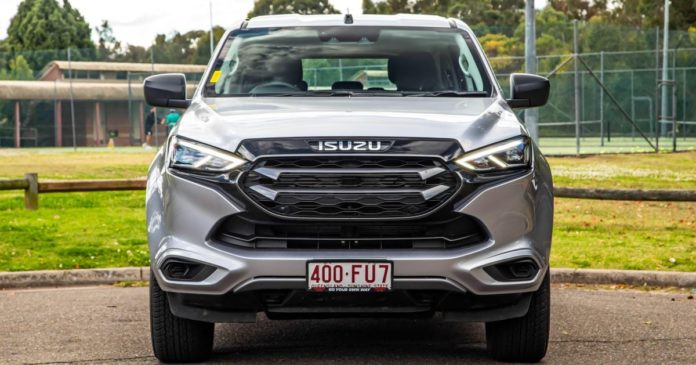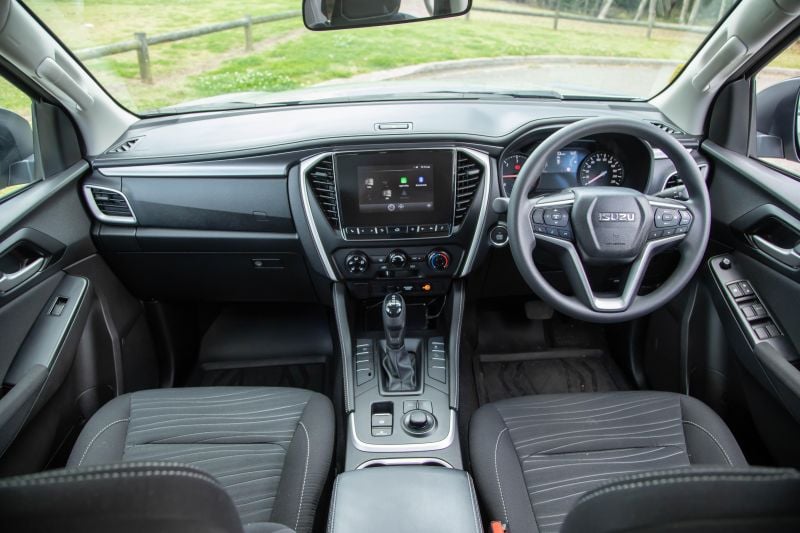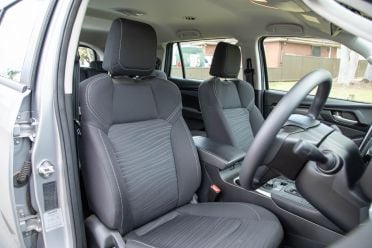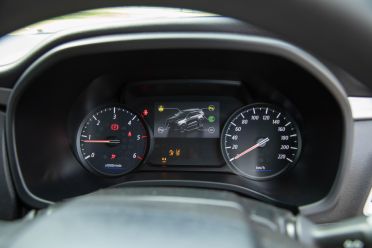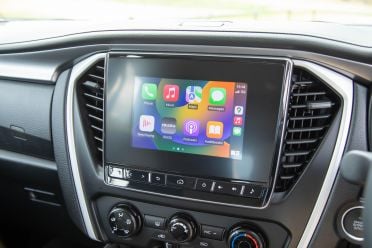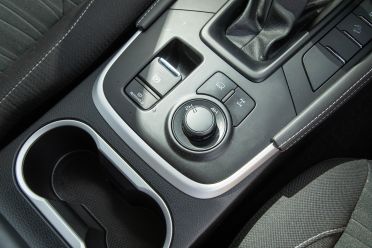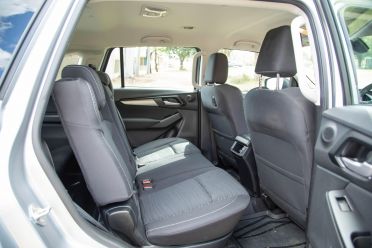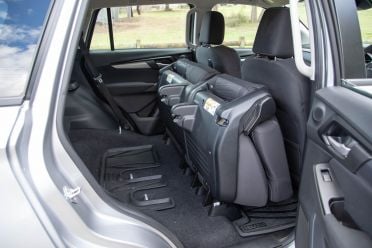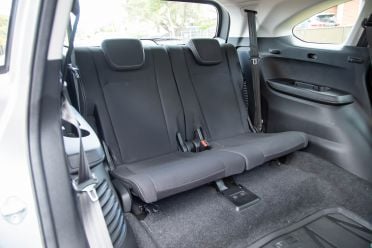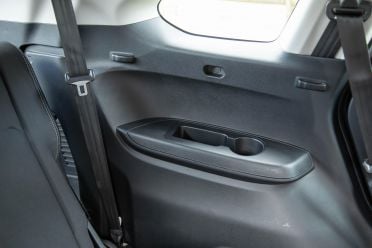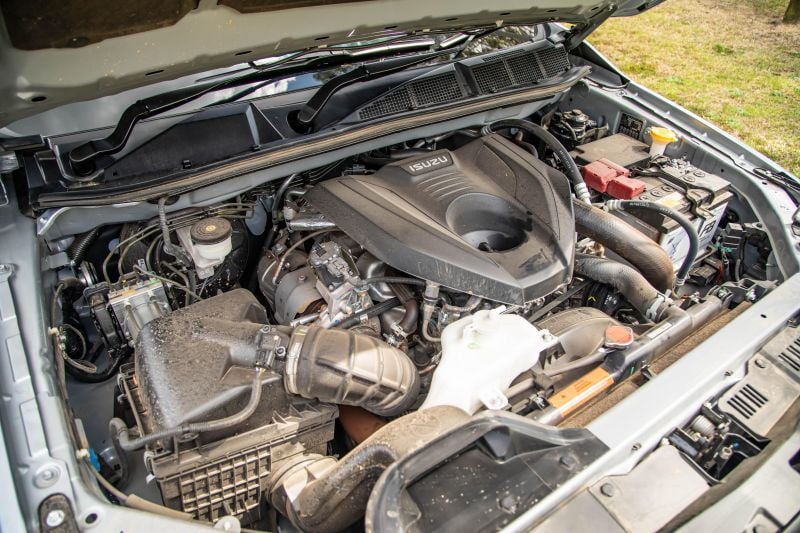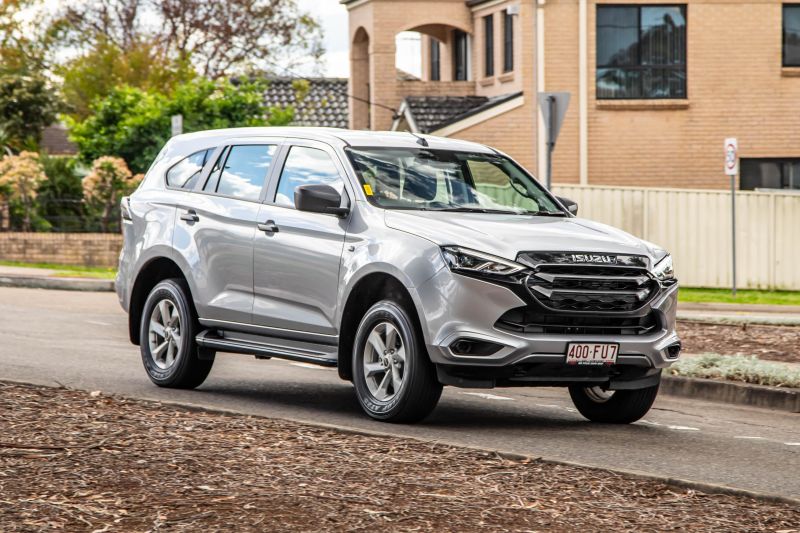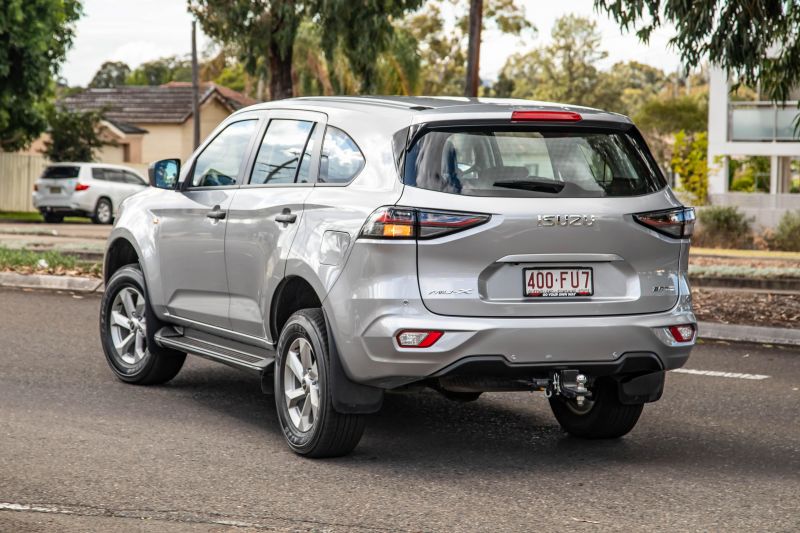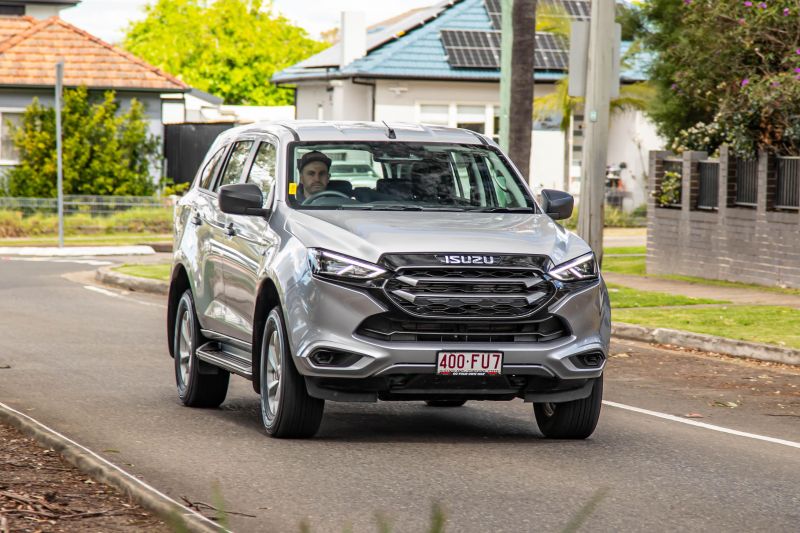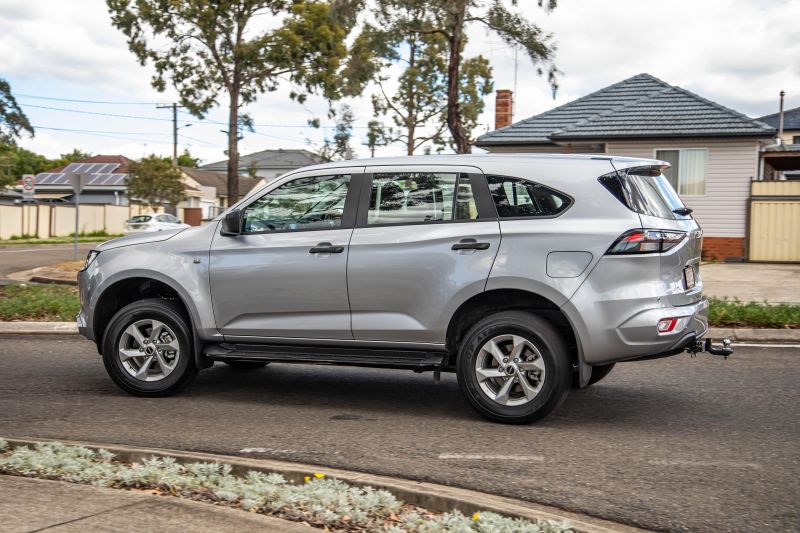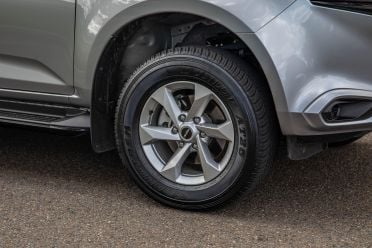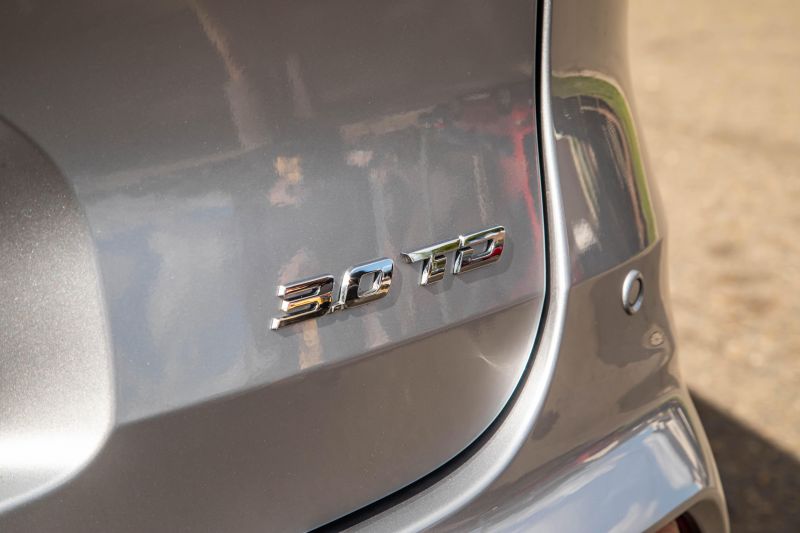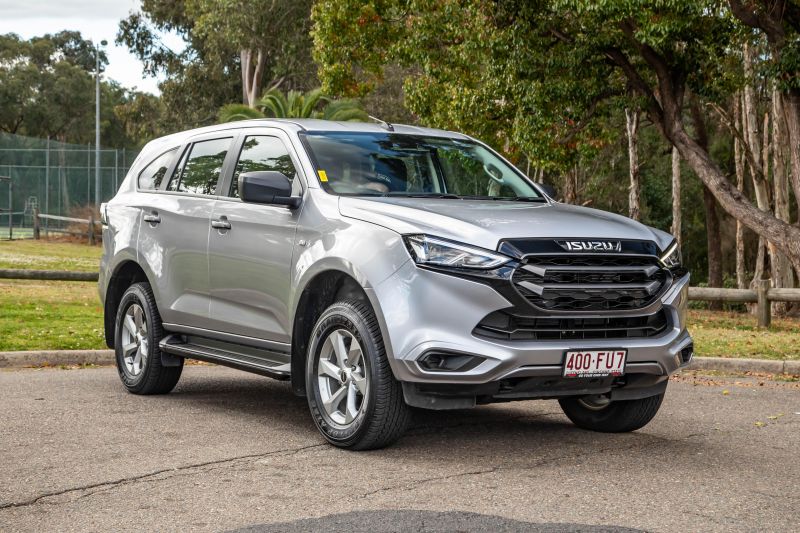Is the entry-level version of the Isuzu MU-X 4×4 SUV the best you can get? In a few ways it could be, but there are some notable shortcomings inside the cabin of the most affordable version of the ute-based off-roader.
I’ll tell you all about them in this review, as well as how practical the interior is, how usable the boot space is, the driving manners, the safety tech on offer, and plenty more.
By the end of this review you should be able to judge whether the 2024 Isuzu MU-X LS-M is going to tick your boxes, or if you should be spending up on one of the higher-grade versions – let’s get to it.
How much does the Isuzu MU-X LS-M cost?
There are six versions of the Isuzu MU-X available in Australia across three trim levels – all with the choice of 4×2 and 4×4. The LS-M on test here is the most affordable of the lot.
That pricing is pretty decent for a diesel ute-based SUV with 4WD and big towing capacity, and that’s no doubt part of the reason the MU-X is one of the country’s most popular large SUVs.
If you’re wondering what it competes against, the obvious rivals are the Ford Everest ($53,290 to $77,000), the Mitsubishi Pajero Sport ($44,940 to $62,440), and Toyota Fortuner ($53,775 to $66,755),
Cut-price alternatives that offer a fair bit more for the money in terms of feel-good factor include the LDV D90 ($38,937 to $52,095 D/A), and the SsangYong Rexton ($47,990 to $56,585 D/A).
Isuzu MU-X pricing:
- Isuzu MU-X LS-M 4×2: $48,900
- Isuzu MU-X LS-M 4×4: $54,900
- Isuzu MU-X LS-U 4×2: $55,400
- Isuzu MU-X LS-U 4×4: $61,400
- Isuzu MU-X LS-T 4×2: $61,400
- Isuzu MU-X LS-T 4×4: $67,400 ($65,990 D/A)
Prices are before on-road costs unless specified
What is the Isuzu MU-X LS-M like on the inside?
You certainly won’t confuse it for one of the higher grade versions of this vehicle, because as soon as you sit in the base model, it feels and looks like a base model. I say this with confidence, because in the weeks leading up to this test, I drove both the LS-U and LS-T models.
The tell-tale elements are the steering wheel – which is plastic, not leather-lined, but at least it’s a reasonably nice plastic to hold – and the air conditioning controls are manual dials, not digital triggers like the upper grades.
Another dead giveaway is above those dials, the tiny 7.0-inch touchscreen media system, which has some of the largest bezels of any screen on the market right now.
Personally, I think it looks ridiculous, especially compared to the larger 9.0-inch display fitted as standard in the grades above.
I can understand why Isuzu has had to offer a smaller screen without satnav in this grade. However, it’s also not the greatest screen to use and takes a long time to recognise a connected phone (whether connected via wire or wirelessly) to Apple CarPlay.
There’s not much to the menus if you are using smartphone mirroring, but otherwise you do have AM, FM and DAB+ digital radio. There is one USB port as well as 12V and auxiliary plugs upfront.
I actually like the manual controls for the air conditioning, but I will say that the MU-X’s cabin is quite slow to warm up on cold mornings. Anecdotally, it took twice as long to get things heated up as the Ford Everest I had during the same loan period.
When it comes to storage there is a tray in front of the gear selector (which is also plastic, not leather), and there are a pair of cupholders between the seats. There are also two more at the edges of the dashboard, as well as bottle holders in the doors and a small covered centre console bin.
I like the transmission tunnel area which has a nice padded section to protect your legs when you are off-roading. The seat comfort is also not too bad, although it does lack a little bit of adjustability compared to more expensive models.
Now I’m not the sort of person who does their make-up on the way to work; but if you are, you might hate this car!
That’s because it doesn’t have a vanity mirror in the driver’s-side sun visor, but there is one on the passenger side – although not illuminated. I also didn’t love the fact that it doesn’t have an auto-dimming rear-view mirror.
In the back there are two USB-A ports; a little storage cubby; map pockets on the seatbacks; bottle holders in the doors; ceiling-mounted air vents with a fan controller above the centre middle seat and a flip-down armrest with a pop-out tray and cupholders if you only have two occupants in the back.
There’s also a handy shopping bag hook on the back of the front passenger seat, which is a nice feature.
Occupant space in the back is pretty good. I’m 182cm or 6’0” tall, and I can comfortably sit behind my own driving position with ample foot and knee room, and pretty good head room and shoulder room as well. You can fit three adults across the back; or if you have youngsters, there are dual ISOFIX points in the window seats and three top-tether points as well.
Access to the third row? There are no sliding seats in this car, which makes it a little bit less practical than some others.
The smallest portion of the split-folding second-row seat is on the driver’s side, which means that if you do have a baby seat in the traditional position of behind the front passenger, you will be asking those who need to access the third row to get in via the roadside of the car.
However, that smaller portion does have a clever flip-and-fold seat mechanism, which does allow relatively easy access to the third row.
In the back there are reclinable seats, which makes for a more enjoyable back-seat bandit experience than say, the Ford Everest, which doesn’t have that type of adjustment for the third row.
Plus, the space in the back row is very good – better than Everest, trust me! – and there’s better foot and head room; although the third-row windows are small, which could be bad news for those who are prone to travel sickness.
Storage options in the third row include a pair of cupholders with trays on top of each of the wheel arches, but there are no USB ports in the back. There are also no child seat anchor points for the third row and no overhead lighting for the third row either.
If you do have those seatbacks reclined, you do have limited third row-up cargo space, which has a maximum capacity of 311 litres if they’re not laid back.
If you fold the third-row seats down, there’s a family friendly space with heaps of boot volume for big holidays – 1119 litres, according to Isuzu. If it’s just you and your partner off for a camping adventure that gets rained out, you could sleep in the back with all the rear seats folded flat, as there’s a huge 2138L of space in that configuration.
Boot practicality includes a 12-volt port and a side-mounted light, while under the boot floor there’s a small additional storage area. Being a big ute-based SUV, it does have a full-size spare wheel underneath the body of the car.
What’s under the bonnet?
Powering all versions of the Isuzu MU-X is a 3.0-litre four-cylinder turbo-diesel (4JJ3-TC), which makes 140kW of power (3600rpm) and 450Nm of torque (1600-2600rpm).
It comes standard with a six-speed automatic transmission and the LS-M has the choice rear-wheel drive (4×2), or 4×4 with low-range transfer case and locking rear differential.
The towing capacity for all grades and versions is 750kg for an unbraked trailer, and 3500kg for a braked trailer. The gross vehicle mass (GVM) for 4×2 models is 2700kg, with 4×4 models upping that to 2800kg. Gross combination mass (GCM) across the entire range is 5900kg.
Fuel tank capacity is 80 litres, and the official combined cycle figure is 8.3 litres per 100km. Over my time with the MU-X LS-M 4×4, I saw a real-world return of 9.8L/100km with highway, urban and back-road driving thrown into the mix.
How does the Isuzu MU-X LS-M drive?
The MU-X LS-M is a pretty nice thing to drive, and having tested higher models range (with bigger wheels) in recent times, I think one of the nicest things about this base model is the ride comfort on offer.
It has smaller alloy wheels with higher-profile all-terrain style tyres, which do cushion occupants to a greater degree than in higher grades – the LS-T with its 20-inch rims is a lot more brittle.
That isn’t to say that it’s perfect, but it is pretty impressive. Families can rest assured that they will be fine on longer road trips, even on rough and bumpy country roads. I drove on those in this car and in the mid-range LS-T, and I found this version to be far more suitable on poor-quality roads.
The steering is very natural and light in feeling as you are driving at higher speeds. However at lower speeds – particularly when you are performing a parking manoeuvre or a three-point turn – you’ll find it can get heavy when you’re changing directions, requiring quite a bit of arm-twirling in order to get around in a tight spot.
It’s not a dealbreaker, but it’s something you might want to consider if you do lots of those sorts of driving moves.
The engine feels up to task for the most part, though it can feel a little breathless when you ask a lot of it; for instance when you are overtaking up a steep hill, you might find it feels like it’s run out of puff sooner than expected.
It does its best work in the low to mid rev range, despite the fact there is some lag from a standing start as well.
The six-speed automatic transmission is okay, but at times it can be a little bit confused in terms of choosing the right gear – or, more correctly, in sticking with a particular gear.
Also note, particularly when driving around the suburbs, the engine is quite loud.
From experience, the engine and transmission tend to do a pretty good job when towing, although once more, you can feel it run out of grunt if you are asking a lot of the engine.
What isn’t annoying is the fact that you can immediately switch off the active lane keeping system by holding the button on the steering wheel, which does make living with the car a lot easier if you’re the sort of person (like me) who doesn’t like having the car pushing them around in their lane.
In this test I did not complete any off-road driving or towing, but I have done that in an MU-X before.
When it comes to off-roading, it does have some pretty good hardware.
This includes that rear differential lock for 4×4 models, low-range gearing and a reworked traction control system that is far less intrusive than in the previous generation MU-X.
So you can rest assured that with some handy upgrades (perhaps even more aggressive, all-terrain tyres, maybe a lift kit, and the removal of those low side steps) it will be a pretty formidable thing off the beaten track.
Want to see Paul’s off-road test of the MU-X? Check out the video up top.
What do you get?
MU-X LS-M highlights:
- 17-inch alloy wheels
- All-terrain tyres
- Full-size alloy spare
- Automatic LED headlights
- Automatic high-beam lights
- LED daytime running lights
- LED combination tail lights
- Dark grey metallic tail light accents
- Rain-sensing window wipers
- Black and gunmetal grey grille
- Colour-coded front bumper
- Black aluminium side steps
- Black side mirrors
- Under-front steel skid plate
- 7.0-inch touchscreen infotainment system
- Wired, wireless Apple CarPlay
- Wired Android Auto
- DAB+ digital radio
- 4-speaker sound system
- 4.2-inch digital multi-function display
- Manual air-conditioning
- Second and third row air vents
- Polyurethane steering wheel
- Polyurethane gear selector
- Electric park brake
- Keyless entry
- Push-button start
- Carpet flooring
- 7 seats
- Cloth upholstery
- 6-way manually adjustable driver’s seat
LS-M 4×4 adds:
- 4×4 select dial
- Rear differential lock button
- Steel plate guards
What’s missing? You don’t get an auto-dimming rearview mirror, the media screen is two inches smaller than the next grade up, there’s no keyless entry buttons to get into the car, and you miss out on climate control air-con… among other things, such as tyre pressure monitoring, sat nav, and plenty more.
I also don’t love that it misses out on roof rails, which limits the practicality if you did want to fit racks or a platform on top; and the mirror caps and door handles are just an unpainted plastic finish.
Is the Isuzu MU-X LS-M safe?
The MU-X wears a five-star ANCAP safety rating, though its based on tests of the D-Max ute in 2022.
-
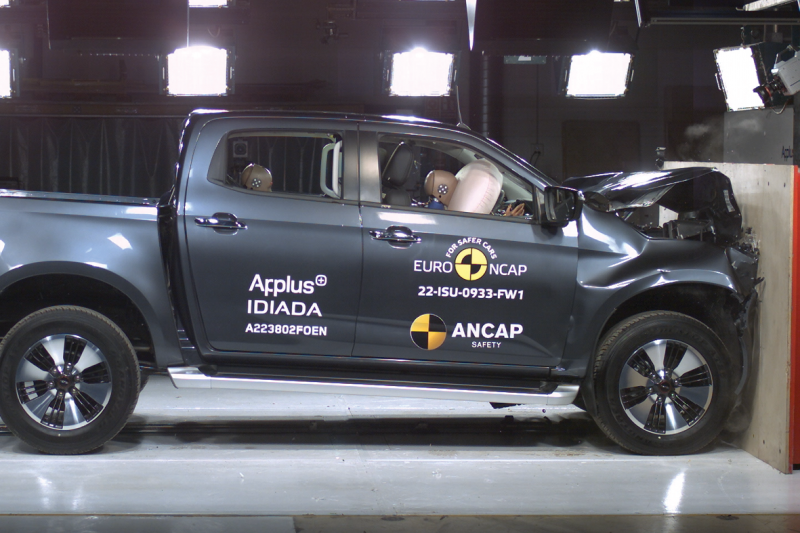
D-Max
The MU-X has a reported adult occupant protection score of 86 per cent, child occupant protection score of 85 per cent (the D-Max managed 89 per cent for this criterion), vulnerable road user protection score of 69 per cent, and safety assist score of 84 per cent.
Standard safety equipment includes:
- Autonomous emergency braking (AEB
- Pedestrian, Cyclist detection
- Turn assist (junction AEB)
- Forward collision warning
- Post-collision braking
- Blind-spot monitoring
- Rear cross-traffic alert
- Blind-spot monitoring
- Auto switch off – disables when towing
- Rear cross-traffic
- Auto switch off – disables when towing
- Lane departure warning
- Lane keep assist
- Emergency lane-keeping
- Adaptive cruise control
- Rear parking sensors
- Reversing camera
- Trailer sway control
- Traffic sign recognition
LS-U variants and above also receive front parking sensors and tyre pressure monitoring.
Sadly, no version of the MU-X has a surround-view camera, which is something seen on some smaller SUVs at half the price. It just makes for a more reassuring driveway or parking experience, especially for parents with youngsters.
How much does the Isuzu MU-X LS-M cost to run?
Isuzu Ute Australia offers a six-year/150,000km warranty, which is a longer duration than is offered by Ford and Toyota (both five-year/unlimited km), but not quite as generous as SsangYong’s seven-year/unlimited warranty.
Yes, there’s also a Mitsubishi with a conditional 10-year/200,000km warranty, but it requires you to service your car exclusively (and expensively) with Mitsubishi’s network.
The brand also offers seven years of roadside assistance, provided you service your vehicle with Isuzu’s service network.
As for service costs and considerations for the Isuzu, there’s a capped-price plan for seven years/105,000km, with the annual average maintenance cost working out at $527. There’s also a free three-month/3000km checkup.
| Service | Cost |
|---|---|
| 3mths/3000km | Free |
| 12mths/15,000km | $435 |
| 24mths/30,000km | $445 |
| 36mths/45,000km | $665 |
| 48mths/60,000km | $555 |
| 60mths/75,000km | $335 |
| 72mths/90,000km | $799 |
| 84mths/105,000km | $455 |
| Total | $3689 |
CarExpert’s Take on the Isuzu MU-X LS-M
There’s a lot to like about this entry-level Isuzu MU-X LS-M, though it’s far from perfect.
Although it feels a bit outdated on the inside – courtesy of that media screen and some of the materials – it could still be a great option for those who aren’t as interested in the blingy bits and just want a dependable seven-seater with off-road chops.
Click the images for the full gallery
BUY: Isuzu MU-X
MORE: Everything Isuzu MU-X

